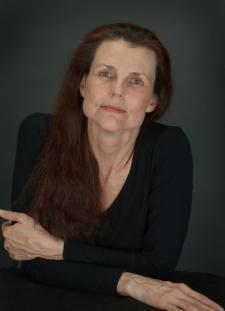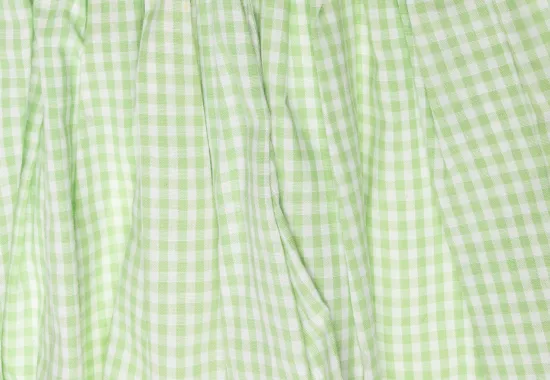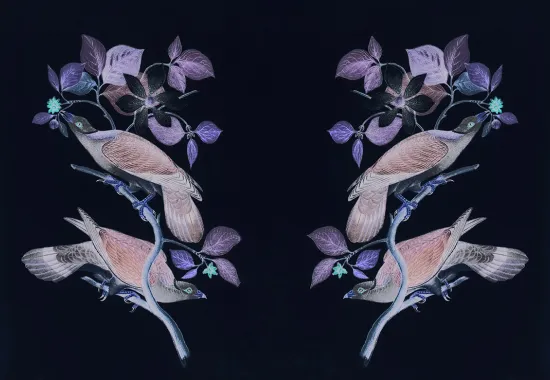THE POWER OF SURRENDER

I live a double life as a poet and a yoga instructor. It’s a curious intersection. The forms are different, but the process surprisingly similar: shedding the unnecessary to find the essential.
There’s a lot of unnecessary to surrender.
In yoga training, there is continuous undoing, from the narrowed brow to the tightened shoulders, held breath, and barricades throughout the body. If we don’t undo these tensions, we train them into the positions we are relentlessly practicing. The forms become blocked—held, instead of connected.
The same thing happens on the page. One day long ago, Robert Bly ran his index finger down the page, saying, “This is talk. This is poetry. Here’s more talk. But this,” he said, pointing to a single phrase, “is poetry.”
How do we get beyond talk to poetry? There’s a lot of unnecessary to surrender. Cummings advised moving from “the measurable doing universe into the immeasurable house of being.” I would insert a middle step. Moving from doing into being requires undoing. Clothes may be shed. Fur may fly. But what’s left is a readable draft that connects with itself, and in time, readers.
Undo unto others as you would have them undo unto you.
Surrender is not, as some politicians insist, weakness. It is not a collapse. Surrender is an art. It involves strength, and it involves trust. It is the great undoing of doing, removing obstacles, physical and psychical, that stand in the way of the moment—or the poem or the yoga position. Surrender leads to something more powerful than defense will ever know, to a spaciousness of being that is inaccessible by force.
The British “yield” sign says it perfectly: “Give way.” The giving of “way” is the beginning of a path into the unknown. Our barriers are cumulative, and peeling even one away clears a lane for others to follow. From the 78th verse of the Tao Te Ching:
Nothing in the world
is as soft and yielding as water.
Yet for dissolving the hard and inflexible,
nothing can surpass it.
The soft overcomes the hard;
the gentle overcomes the rigid.
Or as Rilke put it, “You cannot stride against so strong a flood.”
The two poems I contributed to the fall 2016 issue of NAR and online explore the process of surrender, a downshifting into courage and trust. “The Fitting Room” came out of my first experience of scuba diving, although it could just as well be about dying or a leap from the high dive. “Defending the Fort” examines the way we inhabit the body, the project of a lifetime.
The Fitting Room
Remove clothes
kiss the sky
goodbye enter
at your own risk
threading your life
through a hole
in the water
precisely the size
of your body
going down
further down
your last breath
the blue thread
from the known
to the never
known new
Defending the Fort
We are giving way
between our bones
the logjam in the hip
the dam in the back
of the waist a space
in the shape of pain
we are only beginning
to lay down arms
the tiny forts
we held for years
their toothpick flags
staking claim
on the landscape
the moment we stop
defending is the same
moment it’s ours
Illustration by Matt Manley. Matt has been working as a freelance illustrator for over twenty years. His illustration is primarily figurative and symbolic with surrealist leanings, and past client work includes editorial, corporate, medical, book, and higher education. Though in the end his work is technically digital collage, the process integrates both traditional and digital media. Collage elements are original oil paintings and drawings, with occasional scanned found objects and photos added to the mix, all united in Photoshop.
Recommended
The Shirt
After Hearing David Rothenberg Sang with Birds
Frothing Pink Poodle Droppings






